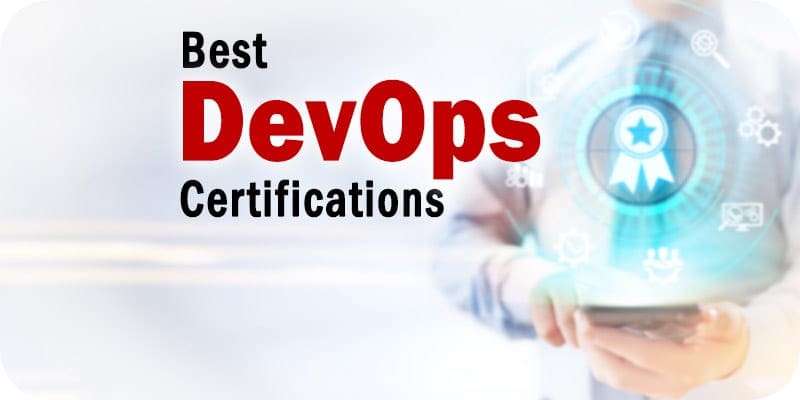
With this in mind, the editors at Solutions Review have compiled this list of top-rated DevOps certifications to consider taking. Each certification contains courses taught by industry experts in software, creativity, and business skills. Certifications are listed in no particular order.
Description: Start by learning the fundamentals of cloud development and deployment with AWS. Then, build different apps leveraging microservices, Kubernetes clusters, and serverless application technology. You should have intermediate knowledge of Javascript, and familiarity with object-oriented programming, web development with HTML and CSS, and the Linux Command Line.
GO TO CERTIFICATION
Description: This DevOps Engineer Master’s Program will prepare you for a career in DevOps, the fast-growing field that bridges the gap between software developers and operations. You’ll become an expert in the principles of continuous development and deployment, automation of configuration management, inter-team collaboration, and IT service agility using DevOps tools such as Git, Docker, Jenkins, and more.
GO TO CERTIFICATION
Description: Learn to design and deploy infrastructure as code, build and monitor CI/CD pipelines for different deployment strategies, and deploy scalable microservices using Kubernetes. At the end of the program, you’ll combine your new skills by completing a capstone project. Learn the fundamentals of cloud computing while being introduced to compute power, security, storage, networking, messaging, and management services in the cloud.
GO TO CERTIFICATION
Description: Students will be able to describe the core concepts of cloud computing, cloud models and architectures, and components of cloud computing, and list the major cloud service providers; apply essential cloud application development concepts and languages including HTML5, CSS3, and JavaScript, to create your first cloud-based applications; explain Cloud Native and apply DevOps practices with a CI/CD toolchain on IBM Cloud, and Git to continuously develop and update Cloud applications; and define containerization technology and state the significance of containers to Cloud Native.
GO TO CERTIFICATION
Description: Microsoft Azure is one of the most popular cloud services platforms used by enterprises, making it a crucial tool for cloud computing professionals to add to their skill set. The Cloud DevOps using Microsoft Azure Nanodegree program teaches students how to deploy, test, and monitor cloud applications on Azure, thereby preparing learners for success on Microsoft’s AZ-400 DevOps Engineer Expert certification exam.
GO TO CERTIFICATION
Description: Take the first steps to becoming a Cloud Developer by completing the Cloud Application Development Foundations Professional Certificate, guided by experts from IBM. Build your own cloud-based applications and learn about the technologies behind them as you go. This Professional Certificate prepares you to develop, build, deploy, and test applications on a public cloud platform and deliver Software as a Service (SaaS) solutions using Cloud Native and DevOps lifecycle management methodologies.
GO TO CERTIFICATION
Description: This program provides the skills you need to advance your career as a data engineer and provides training to support your preparation for the industry-recognized Google Cloud Professional DevOps Engineer certification. 87% of Google Cloud certified users feel more confident in their cloud skills. You’ll also have the opportunity to practice key job skills using Google Cloud to build software delivery pipelines, deploy and monitor services, and manage and learn from incidents. You will learn to apply SRE principles to a service, techniques for monitoring, troubleshooting, and improving infrastructure and application performance among other things.
GO TO CERTIFICATION
This article was written by Daniel Hein on June 2, 2021
Dan is a tech writer who writes about Cybersecurity for Solutions Review. He graduated from Fitchburg State University with a Bachelor’s in Professional Writing. You can reach him at [email protected]
Solutions Review brings all of the technology news, opinion, best practices and industry events together in one place. Every day our editors scan the Web looking for the most relevant content about Endpoint Security and Protection Platforms and posts it here.
© 2012-2023 Solutions Review. All rights reserved.






Leave a Reply